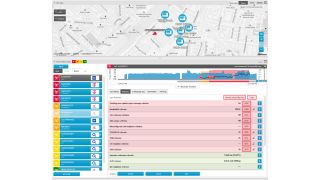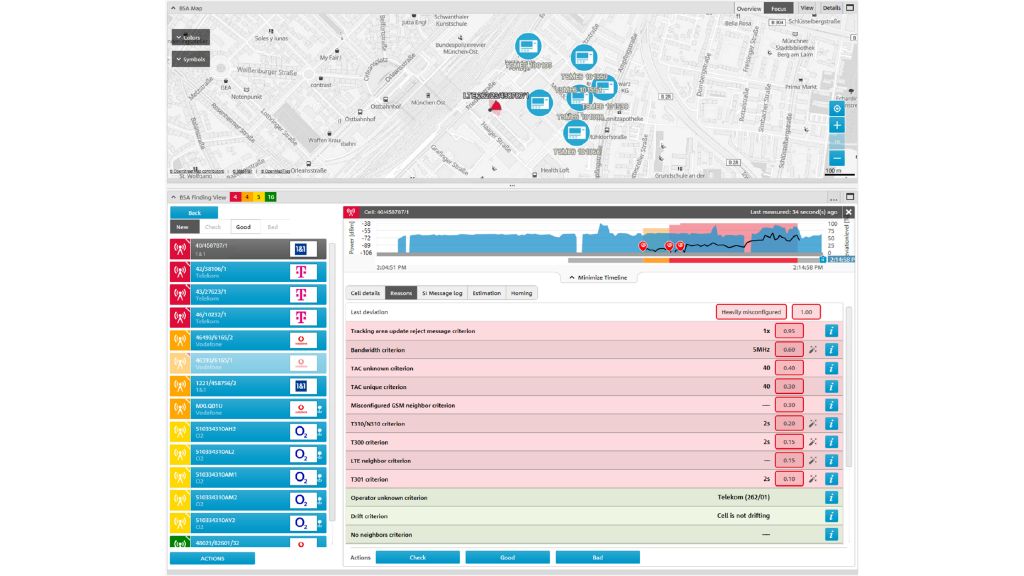WHY R&S®NESTOR?
Automated analysis
Automated analysis with dedicated algorithms for each technology focusing on parameters typical to rogue cell behaviors enables comprehensive classification of results for each detected cell.
Easy system optimization
Performing measurements before deploying the system helps to determine the number of probes required and where to set them up to efficiently protect the area of interest.
This also helps generate a cell reference database and fine-tune the analysis algorithm to cope with the unique characteristics of the network environment at each location.
Deployable anytime anywhere
R&S®NESTOR supports any type of topology, from a fixed installation to a temporary deployment, from a single sensor for a single site (e.g. meeting room/embassy) to multiple sensors for larger environments (city centers, army bases) and even multiple sites.
It also supports any type of infrastructure (LAN, 4G/5G/WLAN routers or even tactical radios), enabling it to connect different system components to fit any type of activity.







